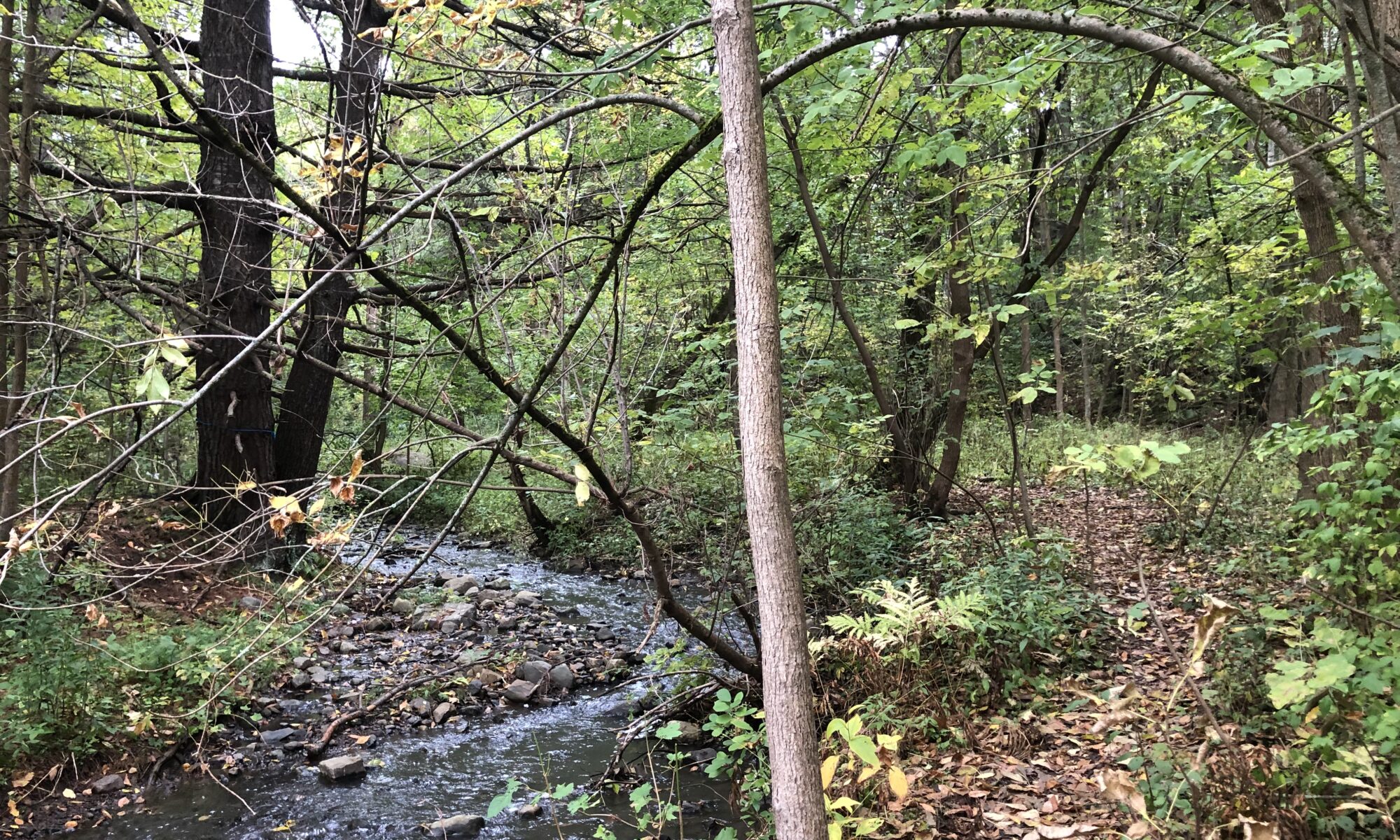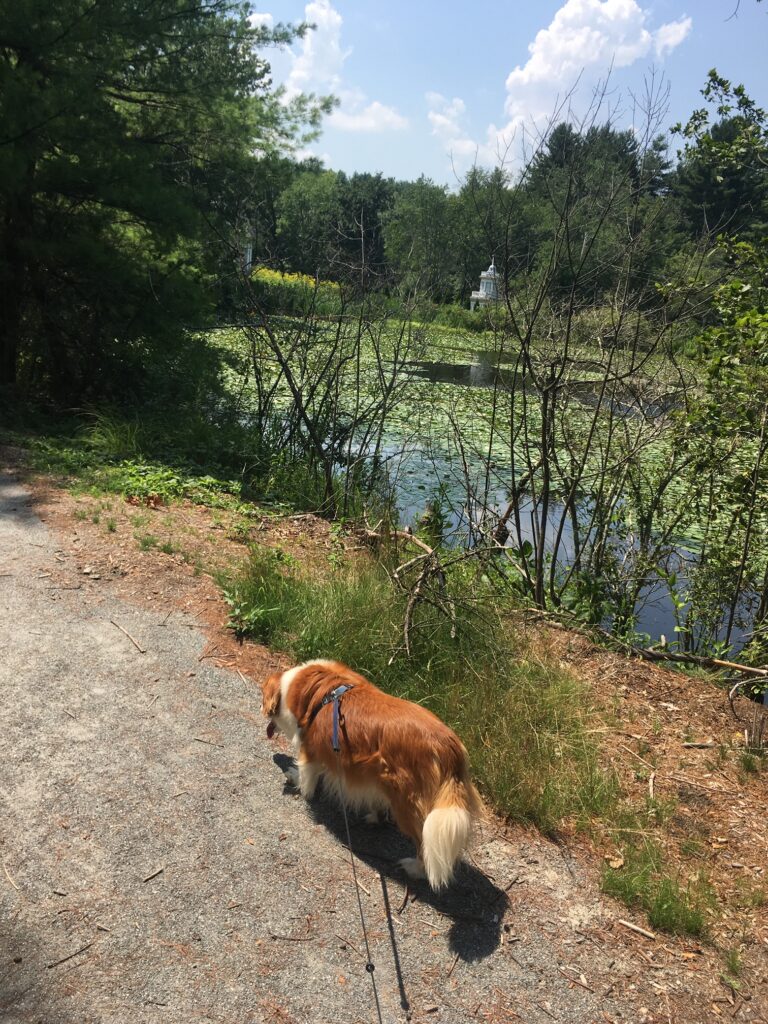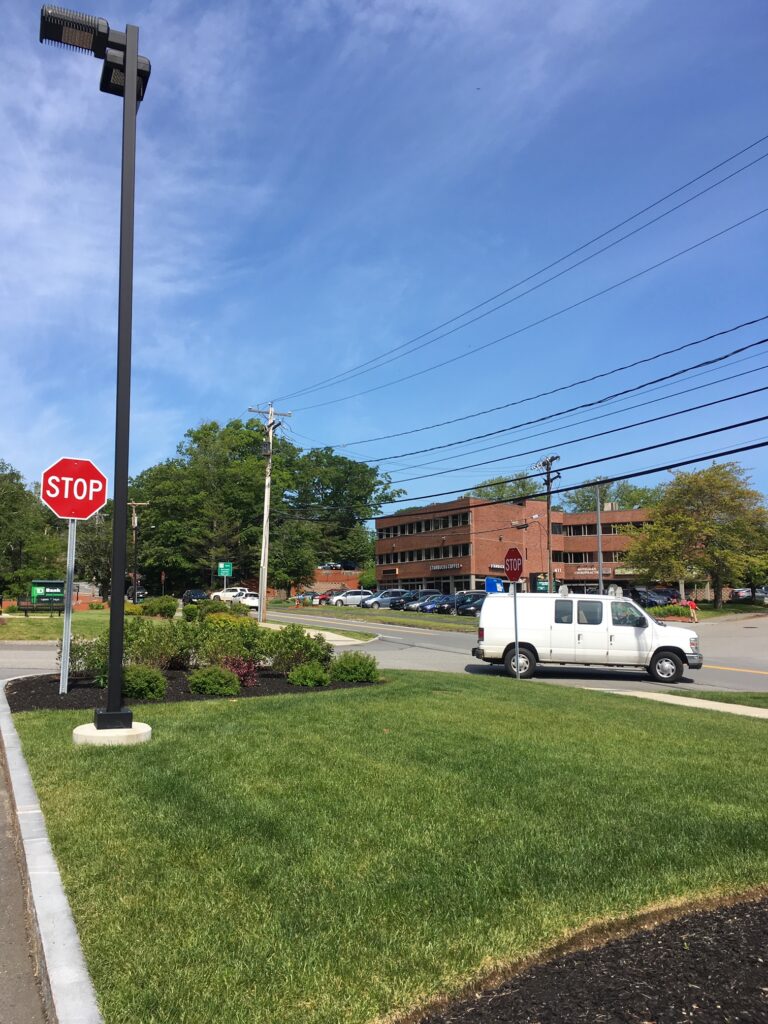
My hometown is Acton, Massachusetts, a small suburban town 45 minutes west of Boston with about 20,000 residents. Acton holds a special place in my heart because, until the start of this semester, it was the only place I had ever lived and ever truly known. As a result, my sense of place there is very strong.
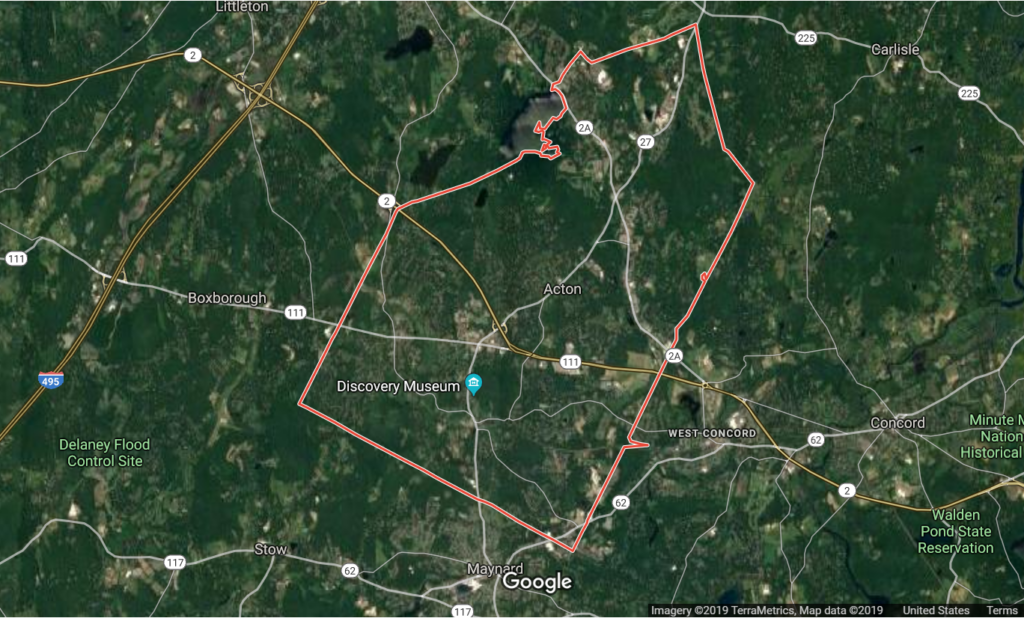
Acton lies next to the intersection of Interstate 495 and Route 2, two major highways in Massachusetts. Acton relies heavily on cars and has essentially no forms of public transportation besides school buses. As a result, nearly every family in Acton has at least one car, with many families having two or more. Although this is obviously bad for the environment because of the emission of fossil fuels, I have a fondness for cars because many of my memories in Acton come from time spent in cars. In high school, having a car of your own was a sociocultural thing: as an upperclassman, having a car was almost the norm and gave a higher “status”, per se, and an added sense of freedom. My own car, a 2005 Toyota Matrix, is not the most fuel-efficient, but, as a student, I could not afford a car that was better for the environment. I feel a strong connection to my car because I associate it with my sense of place in Acton.
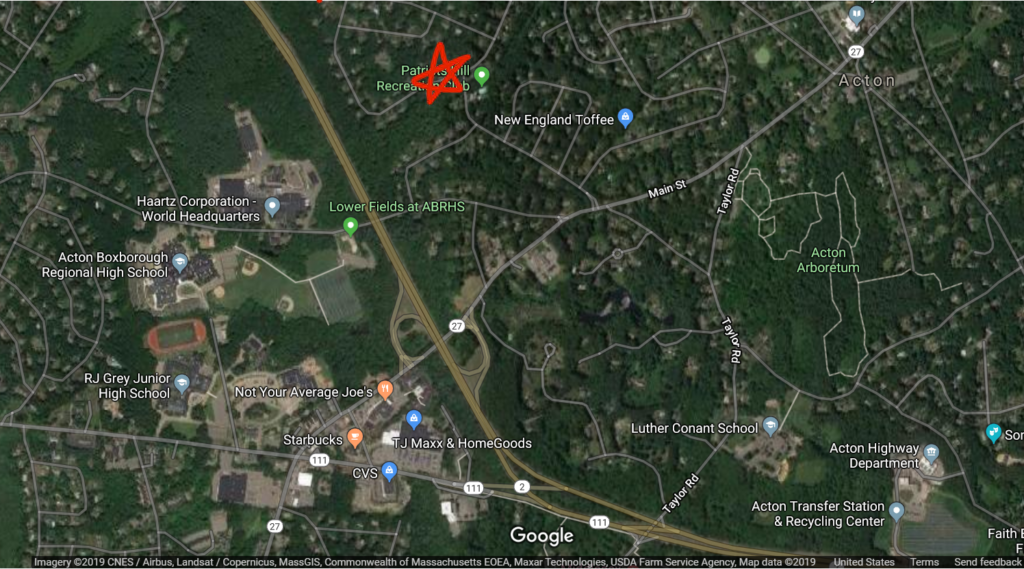
The red star in the map above marks my house. As is clear from the previous maps, Acton contains lots of green space. Much of this is residential developments surrounded by forested areas. However, there are also many designated natural areas in Acton where residents can connect with nature and strengthen their ecological sense of place. For example, the Acton Arboretum is an area very close to my house with walking trails, picnic tables, and beautiful scenery. However, also very close to my house is the public high school I attended, a manufacturing plant, and two strip malls. Both areas are important to me, and both have shaped my sense of place in different ways, with the arboretum shaping my ecological sense and the high school and commercial areas shaping my sociocultural sense.
The picture above left is from August 2019, during a walk with my dog on a local rail trail next to a small pond. Rail trails are flat, paved walking trails constructed on top of abandoned railroad tracks, which are popular throughout New England. This one is the Bruce Freeman Rail Trail, which is a short drive from my house and offers views of some very pretty natural areas in Acton.
Acton also has constructed green spaces, like the grass island and mulched beds seen in the photo to the right above. They add to the aesthetic sense of place even though they are not explicit natural areas, and help break up the commercial development and roadways. The area photographed is an intersection near the high school with a Starbucks and a CVS, making it a popular place for students and adults.
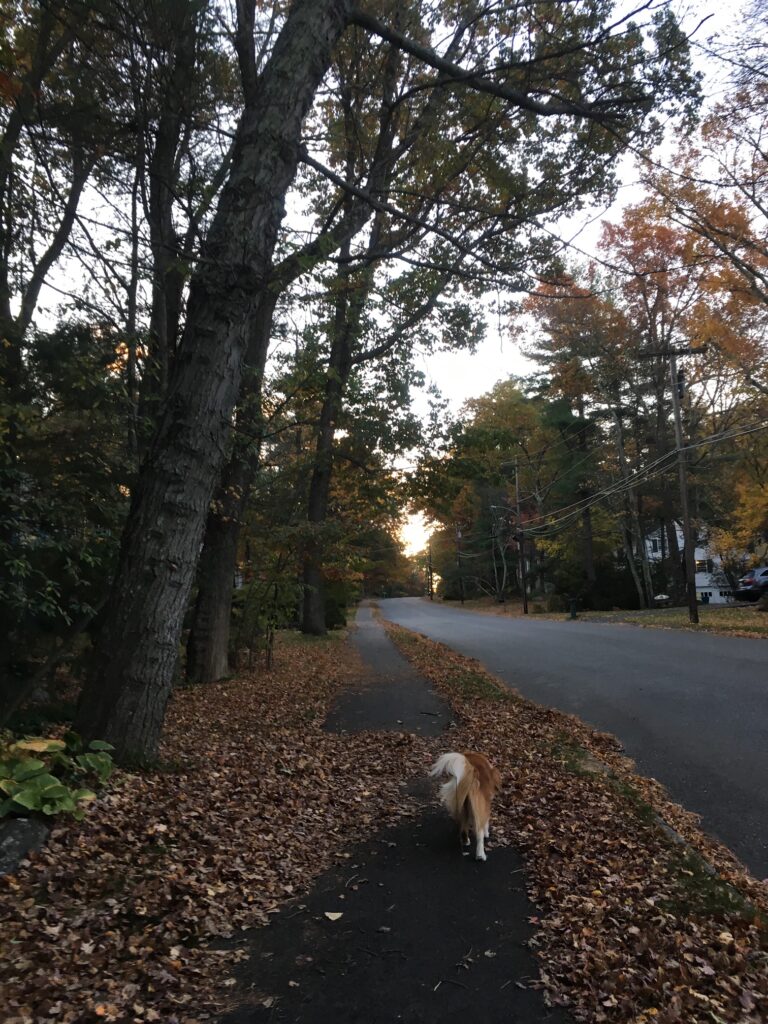
This is my neighborhood. It is a very New England style area, with treed streets and colonial houses. Many residents in the neighborhood are families with children, as the school system is the biggest draw of Acton. You will almost always see someone walking their dog, as I was in this photo. I feel at home in these streets.
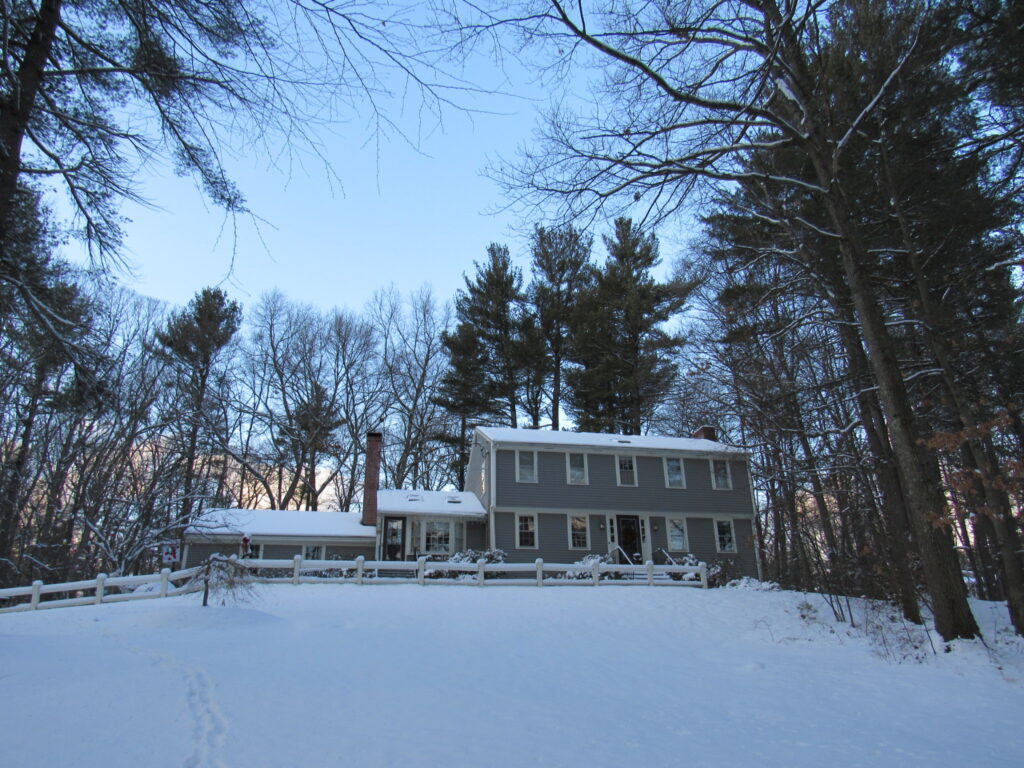
This is my house, the only house I have ever lived in. This is where my sense of place is the strongest. I think I have spent more time in this house than I have spent out of it, which is scary to think about. But, it encompasses all the aspects of sense of place. It is surrounded by the woods where I played as a child. It has history: our property lines are still marked by rock walls from centuries ago. Socially, it is where I learned to interact, first with my family, and later with friends. Culturally, it is where all our family traditions happen, like decorating the Christmas tree and hosting Thanksgiving dinner. Sometimes, I feel sad that I’ve only lived in one place in one town my whole life. But now, I realize that I got the benefit of an extremely strong sense of not only place but also home.
